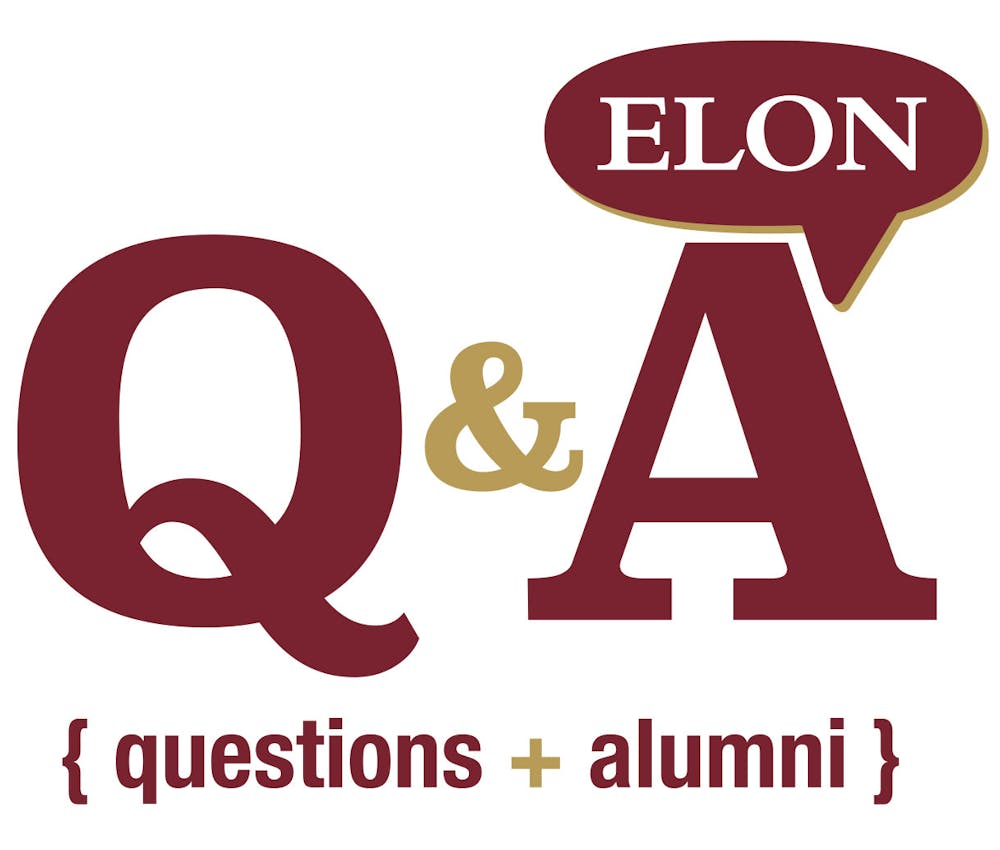When asked what services they want from their alma mater, Elon alumni overwhelmingly said they don’t need anything — but want to give back to current students. Kendra Haskins, senior director of Alumni Engagement, said Elon is launching a new AI program Sept. 16 to help students connect to Elon alumni.
“The alumni body wants to help,” Haskins said. “They are ready to give advice, make contacts, offer information, answer questions.”
The Student Professional Development Center in partnership with Alumni Engagement is using a platform called Protopia, which is made for AI alumni engagement. The company is headquartered in Raleigh but works with schools internationally.
“It really is a win for both sides of the equation, the asker and the ask-ee,” Haskins said. “This just felt like the right fit. Our alums want to be a resource, and this allows literally all of our alums to be a resource.”
Protopia won’t require students or alumni to create an account or download an app, Haskins said. Users of the platform will be asked to put in their name, email and question they are asking. In terms of the AI itself, Haskins said, privacy should not be a concern to students.
“There's no perfect system for that, but you are truly controlling what you are entering,” Haskins said. “There's so much control that is given to you as the person asking, and because the question then is going through the platform itself there, it's not like there's a lot of other pieces that you're necessarily having to enter to go beyond that.”
There is also a range of things that can be asked on the platform, Haskins said. Broad questions about a user's specific career, to questions about living in a certain city or Elon specific questions about talking about a certain student organization are all types of questions students can ask, Haskins said.
The average amount of responses to a question is 2.3 and will get a response within 72 hours, Haskins said. If 72 hours have passed and a student has not been contacted by an alumni, the SPDC and office of Alumni Engagement will reach out.
“We will make sure every question gets a response,” Haskins said.
Haskins also said she hopes this will bring in more alumni who have not been as engaged with Elon, but could offer advice to students. She said that as the office of advancement does not have a large staff, it isn’t possible to contact every alumni, but through AI, Elon can cast a larger net.
“We don't necessarily have relationships with all of them, so it really is going to also help our work in potentially engaging with alumni,” Haskins said. “We know every professor's got the 10 alums in their cell phone, and they ask them, which is great, but what a fabulous opportunity to go wider and really engage, because goodness knows where some of our alums have ended up.”
Other AI advancements at Elon
This year, Elon has launched other tools for students using AI including an academic advising tool and will be launching ElonGPT — first for staff and faculty, and then for students — a software comparable to ChatGPT but without using people’s data to train AI, Mustafa Akben, Elon’s director of AI, said. It will be free and help students to utilize AI ethically and responsibly, Akben said.
The advising chatbot was piloted this summer and can be used to ask questions related to academic advising and registration. It can also answer other Elon related questions, such as when is the best time to bring a parent to campus and where can they stay.
In a study released by Resume Templates, managers are more likely to prefer a candidate for a job who has less work experience, but more experience with AI. This increase of AI in the job force is part of why Elon is working to stay ahead of the curve with new technology, Akben said.
One reason Akben said Elon is looking to use its own AI program is because of a report released by Tyton Partners. The report found that half of students regularly use generative AI — and 75% of students who already use AI will continue to do so even if professors or schools ban it. This means that professors will need to be aware of this and teach accordingly, Akben said.
A more productive use of AI is using it for brainstorming and outline work, Akben said. This is why ElonGPT, when launched for students, will include safeguards where the chatbot will not fully do assignments for students. Akben also said it defeats the purpose of learning and taking a course to allow AI to do students work for them.
“You want to use your critical thinking,” Akben said. “Make sure that you're learning something through whatever course you're taking, and use AI for these purposes, not just, ‘I'm going to offload my tasks.’”
The current version of ElonGPT, made this semester for faculty and staff, is not learning and teaching oriented and won’t include the same guards, Akben said. A use of ElonGPT for staff and faculty can be creating end of year reports, facilitating conversations and summarizing documents, Akben said.
If there is an problem or unexpected response for ElonGPT, Akben said faculty and staff are encouraged to report that and he and his team will work to fix any issues that arise. Elon won’t have any way to monitor the use of ElonGPT as it is people’s personal data, Akben said, therefore Elon will be relying on survey responses from participants to see if it is effective. Akben also said he is interested in hearing feedback from students on what is helpful to them in a director of AI for them at Elon and beyond.
“I just really want to learn,” Akben said. “How can I help them to successfully complete their program and be ready for their career?”


